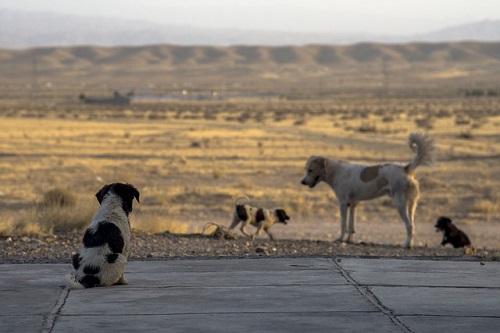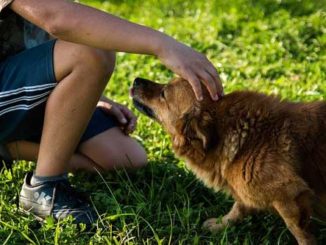Dogs are always human’s best friends no matter what!!! Let stray dogs no longer stray!!
“The greatness of a nation and its moral progress can be judged by the way its animals are treated.” ~Mahatma Gandhi
Stray Dogs are un-owned, free-roaming and shelter-less which live on the streets, parks, around hotels/ restaurants, school and college premises, hospital premises, bus and railway station premises and in other public places, in close contact with humans. The reason for their large population is due to the unique combination of local tolerance, abundant food, shelter, breeding opportunities and ineffective local dog management policies. Most of the people look at them as a menace and a threat. Few unfortunate incidences of dog bites have demonized and turned people against them.
Stray dogs, usually do not attack/bite unless provoked, sick or when in severe distress/ pain. The relationship between humans and dogs has co-existed for more than 15,000 years. Canines are opportunistic and adaptable creatures and if food resources are made readily available because of poor kitchen waste management, dog populations will proportionately increase. These dogs can have a good quality of life in some respects as far as animal welfare issues are concerned as they are free to express their natural behaviour and can make choices about their own lives and wants. But they are exposed to high risks and may suffer from diseases that cause pain, discomfort and suffering, such as mange, etc and are also at risk of injury and vehicular accidents. In some places, stray dogs might be considered ‘community dogs’ with no specific owners but the community cooperates to provide food, water, shelter and basic care for them and they in turn provide many benefits like companionship, security and assistance. There is also research evidence of the positive effects dogs have on human health and well-being. Despite these benefits, dogs can cause some other concerns in communities especially when they are free roaming like zoonotic disease transmission, road traffic accidents, etc.

Our Responsibilities
If we do not like dogs or cannot help them, we should at least not abuse them and raise our voice for their rights. Extending our sociability and emotions towards dogs can help us develop a better sense of empathy for them and it is our moral and ethical responsibility to be sensitive towards their physical as well as emotional well being. It is unacceptable to remain a mute spectator to animal abuse. In such cases, one shouldn’t hesitate to intervene, object and report to concerned authorities like the police/ animal welfare institutions/ animal welfare organization/ local authority/ NGOs/ animal activists, etc. Since animals are inarticulate, we as evolved species need to step forward and protect them to the best of our capabilities.
What’s the Solution?
Culling Dogs are NO Answers! Dogs are part of our ecosystem and are not encroachers on earth; there is no question of eliminating them. It is the duty of every citizen to have compassion for all the living creatures including dogs.
Multi-pronged dog management policies need to be formulated and implemented, which are designed to offer an ethical and effective alternative to culling and they require long-term commitments. Such policies need to be framed with certain objectives – to improve health and welfare of owned and stray dog population, reduce numbers of stray dogs to an acceptable level, promote responsible ownership, assist in the creation and maintenance of a rabies immune or rabies free dog population, reduce the risk of zoonotic diseases, manage other risks to human health (e.g. parasites), prevent harm to the environment and other animals, etc. While framing such policies, following proposed, specifically-tailored, management interventions need to be considered:
- Coordinate, collaborate and consult with all stakeholders for framing best dog management policies.
- Robust Information, Education Communication (IEC) Campaigns are key component in dog management programmes.
- Identification and Registration of dogs (licensing): More efforts need to be made to strengthen Dog Breeding and Marketing Rules, 2017 and Pet Shop Rules, 2018.
- Implementation of Animal Birth Control (ABC) and Early Neutering in Dogs (END) combined with Anti Rabies Vaccination (ARV) followed by control of parasitic infestation in dogs.
- Promotion of responsible dog ownership.
- Steps should be taken to exclude dogs from sources of food to reduce the possibility of dogs congregating around rubbish sites.
- Public adoption of Stray Dogs: Efforts needs to be made to encourage animal lovers to adopt the stray dogs.
- Establishment of dog rescue centre’s/ shelters: They cannot be used as the sole means for controlling the dog population, but they may provide a useful contribution under certain circumstances.
- Authorities should seek advice from Veterinarians and dog behaviour experts in developing dog safety educational programmes.
- Dogs are sentient creatures and they can be fed without causing any inconvenience to the public and without causing environmental pollution. Stray dog should be fed in identified places away from public parks, educational institutions, hospitals, etc
- Euthanasia and carcass disposal: In the event of incurable illness, injury or behavioural problems with no prospect of recovery, euthanasia may be necessary as part of a dog management programme followed by scientific carcass disposal.
- One Health Approach: Successful collaboration between animal health, human health and environmental sectors is imperative.
- Monitoring and evaluation: These efforts play an important role in the programme process and allow a programme’s effectiveness to be assessed, issues to be identified and adjustments to be made accordingly.
- Economics of Dog Control Programmes: The costs associated with dog management programmes can be enormous. Sufficient funds need to be earmarked and made available for effective and efficient control of dog population.
“Every animal has been created for a purpose. It is a duty upon every human being to respect Allah’s creation. If we ill treat any of His creation, we will be questioned abStrayout it on the Day of Judgment.”






Be the first to comment